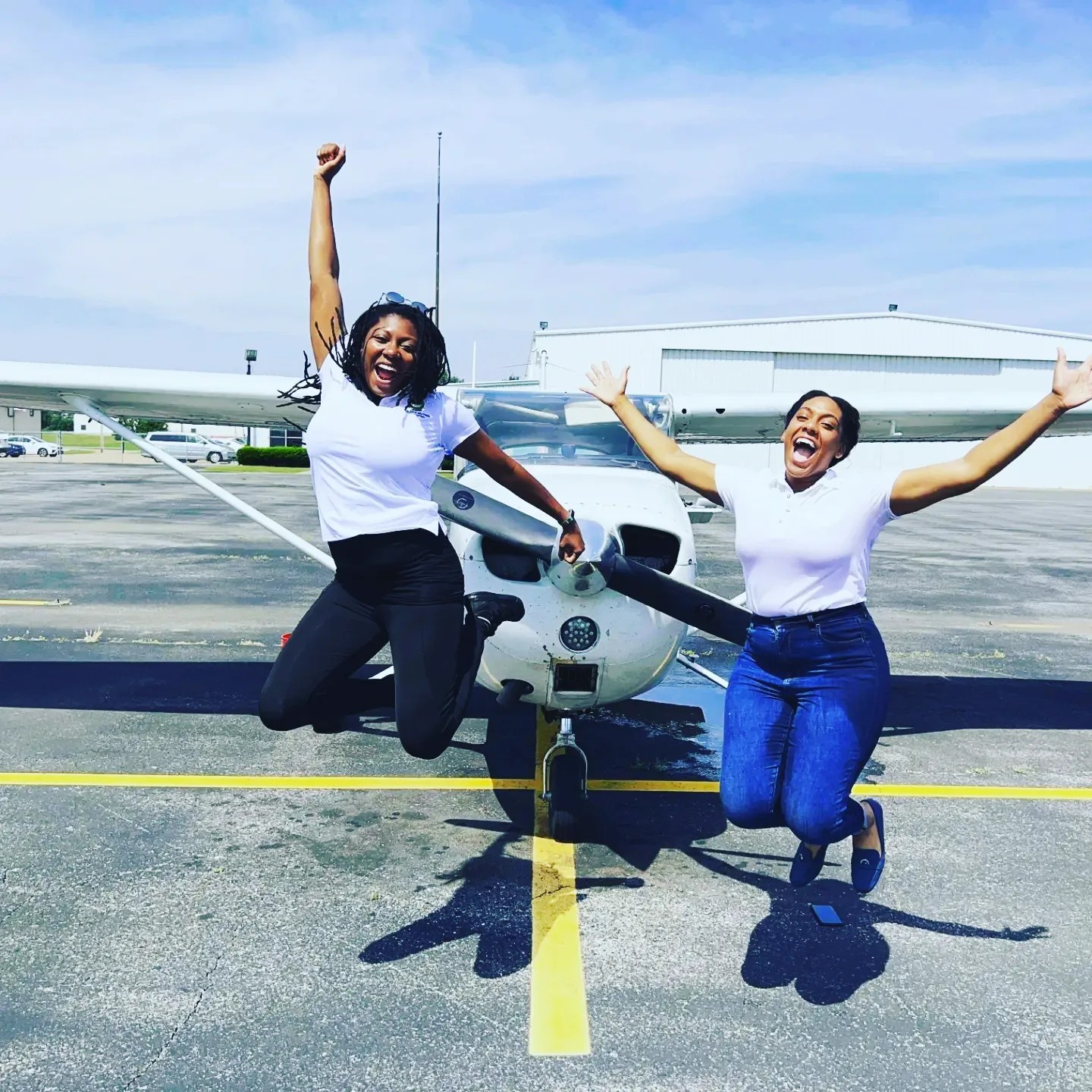Alright – so today we’ve got the honor of introducing you to Kourtney Gillespie. We think you’ll enjoy our conversation, we’ve shared it below.
Kourtney, looking forward to hearing all of your stories today. It’s always helpful to hear about times when someone’s had to take a risk – how did they think through the decision, why did they take the risk, and what ended up happening. We’d love to hear about a risk you’ve taken.
I remember the summer of 2015. I had just received my bachelor’s degree from Embry-Riddle Aeronautical University, and I was ready for the world. I thought that having a degree in my hand would unlock all of life’s doors and bestow upon me an array of opportunities. All that degree stood to do at that moment was tell employers that I had zero experience in the field but was over-qualified to do other entry level positions outside of my industry.
After graduation, I immediately moved back home and decided I would continue my flight training while working as a lifeguard to support myself. Simple plan, or so I thought, until I learned that private student loans cannot be income adjusted. At 21 years old, I was paying the equivalent of a 4-bedroom mortgage. Can you imagine the utter shock of finding out that your lofty high school financial planning did not turn out the way you just knew it would? So begins a seven-year struggle to get a foothold in the aviation industry. I would apply to different jobs in my field and was passed up by other candidates with years of experience in the industry. I do not blame the companies for their decision, but I was frustrated after years of running into dead ends.
After years of running into financial dead-ends, which meant years of no flying, I remember securing a job as an aviation analyst. Originally, I was thrilled to be able to start saving again, but overtime, I was so miserable because the job required me to talk to pilots on the phone all throughout the day. This was a constant reminder that I was stuck inside while these guys were up flying. As if the injury was not enough, the insult was that moving cities for a new job required me to still be living on a financial razor’s edge. No saving for flight. Enough was enough. The way I saw it was I could continue to be stuck in a fluorescently lit building, using none of the skills I have earned over the last few years, or I could “go for it” and chase my dream of becoming a pilot.
I’m going for it.
I quit my job, moved home, went back to lifeguarding full time, and began saving as much as I could. Of course, I had to pull out the maximum amount of loans that I could request at the risk of financial ruin if I did not pull this off. Really, the scariest part about chasing dreams is the uncertainty and the risk of failure. I believe that everyone needs to become familiar with the idea that if you want to succeed at something you need to be ready to take a risk. Not only will you be taking risk, but you must ask yourself, what am I willing to sacrifice? For me, I left my home, family, car, and all of my possessions in Florida. I booked a one-way ticket to Memphis international with a carry-on suitcase and “by any means necessary attitude”. I have just crossed the three-year mark since I have arrived and let me tell you, the risk paid off. I am now a senior flight instructor helping to push other students fulfill their dream of becoming a professional pilot. This is not to say that my time here was easy, there were times I was pulling 12-hour shifts on Shelby drive as a security officer in addition to flight instructing, but the risk was certainly worth the reward. As I end my time here in Olive Branch and look forward to flying bigger and faster planes, let me be the first to tell you, you can take a risk and create the future you want, or you can play it safe. If you decide to take the risk, just know there is no “perfect time” to make the leap of faith. If you do fail, fail forward because every rejection you face will point you to that “yes”.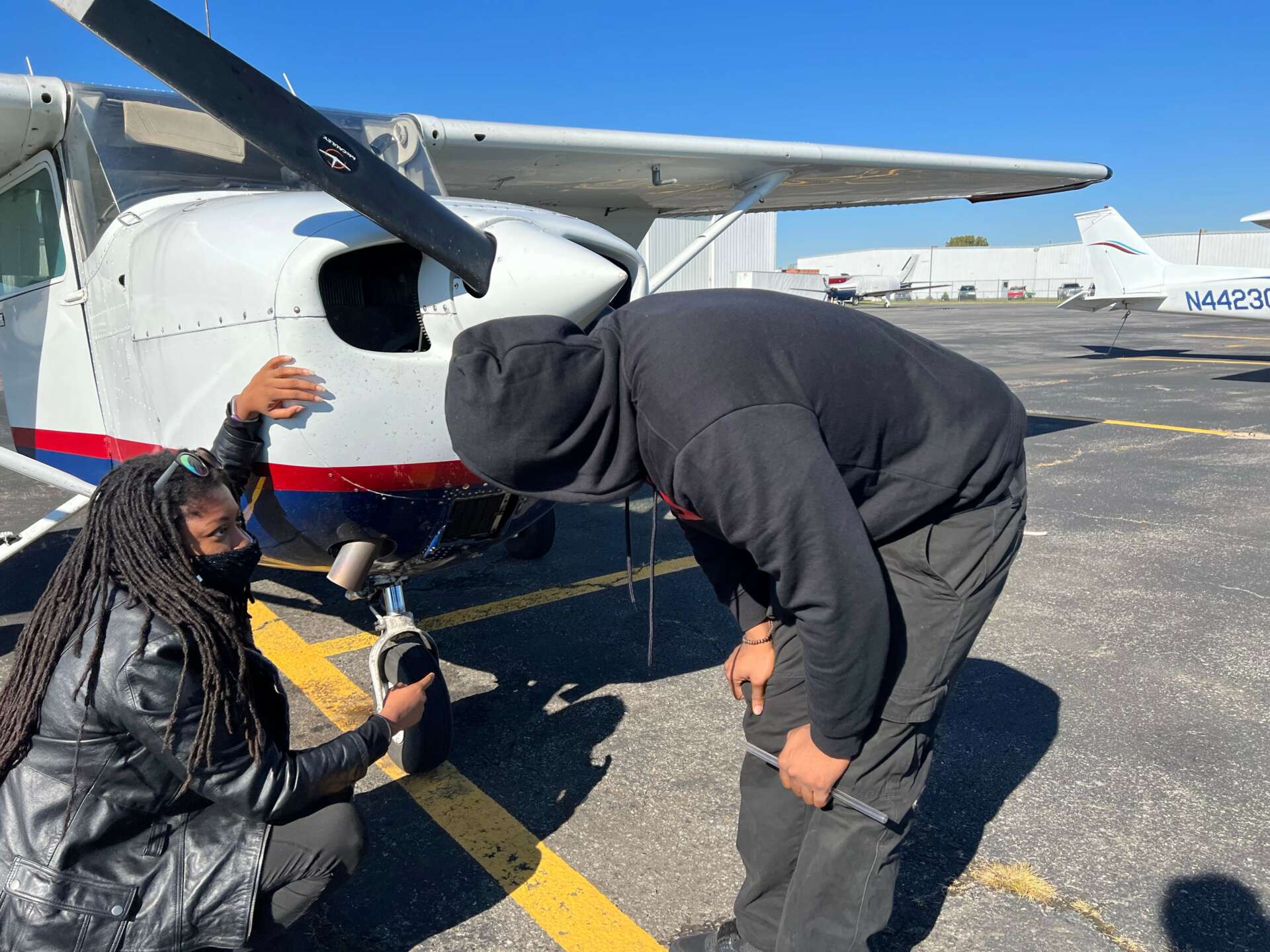
Kourtney, love having you share your insights with us. Before we ask you more questions, maybe you can take a moment to introduce yourself to our readers who might have missed our earlier conversations?
My name is Kourtney Gillespie. I am a Sarasota, Florida native and an Embry-Riddle Aeronautical University Daytona Beach alumni. I am currently a Senior Flight Instructor and a Line Check Airman at the Luke Weather’s Flight Academy located in Olive Branch, Mississippi. Ever since I can remember, I was always near to aviation. When I was about 5 years old I have a very vague memory of my parents taking me to airshows and I would be so memorized with what I was seeing, almost to the point of being in a trance.
When Sarasota schools used to encourage “take your child to work day”, I decided to join my younger cousin and tag along to go work with his step-father. He was employed as a ramp agent at our local airport. I was nine years old at the time and have never set foot in an airport, let alone on an actual airplane. Everything was so exciting to us whether it was cleaning the airplane at night, reorganizing the magazines, or watching the ramp agents marshal the airplanes in and out of the gate. Most impactful for me, that day, was when we were allowed to sit on the tug as it pushed back aircraft. Every time the ramp agent unlatched the tug and began backing away from the aircraft, I would smile and excitedly wave at the pilots and to my absolute joy they would return the smile and wave back to me. That was my very first impression of pilots. I thought they were all very friendly people.
Before I even began to dream I could ever be a pilot, I noticed I never saw anyone fly an airplane that looked like me so I thought it was pointless to even dream that I could be sitting in the left seat waving at another little girl who was sitting on a tug one day. 3 years passed and I was beginning to think about other careers. For a 12-year-old, I thought being an orthodontist by day and rock guitarist by night was my path until my mother decided she would send my older cousin and I up to Ohio to cheer my brother on in an big rival college football game.
I took my first flight to Columbus, Ohio. Since I had never traveled by any means other than a car, imagine my surprise when a commercial airliner pulled up to my departure gate painted to resemble Shamu the SeaWorld whale! As I took my seat on my Shamu flight, I was so intoxicated by all the multicolored lights the electric atmosphere. When we taxied out to the runway and I heard the engines spool up for take-off, I discovered the magic of flight, but more importantly, I knew with absolute clarity what my calling was. I will become the captain of a Boeing 747 flying cargo, from the United States to South Korea. Ultimately, I dove into the aviation industry because flying gave me a total sense of freedom while still having the soothing element of home. It was a feeling I never knew I was craving, and I am still chasing it to this day. Simply, I chose to become a pilot because every day I do not fly, I long to be.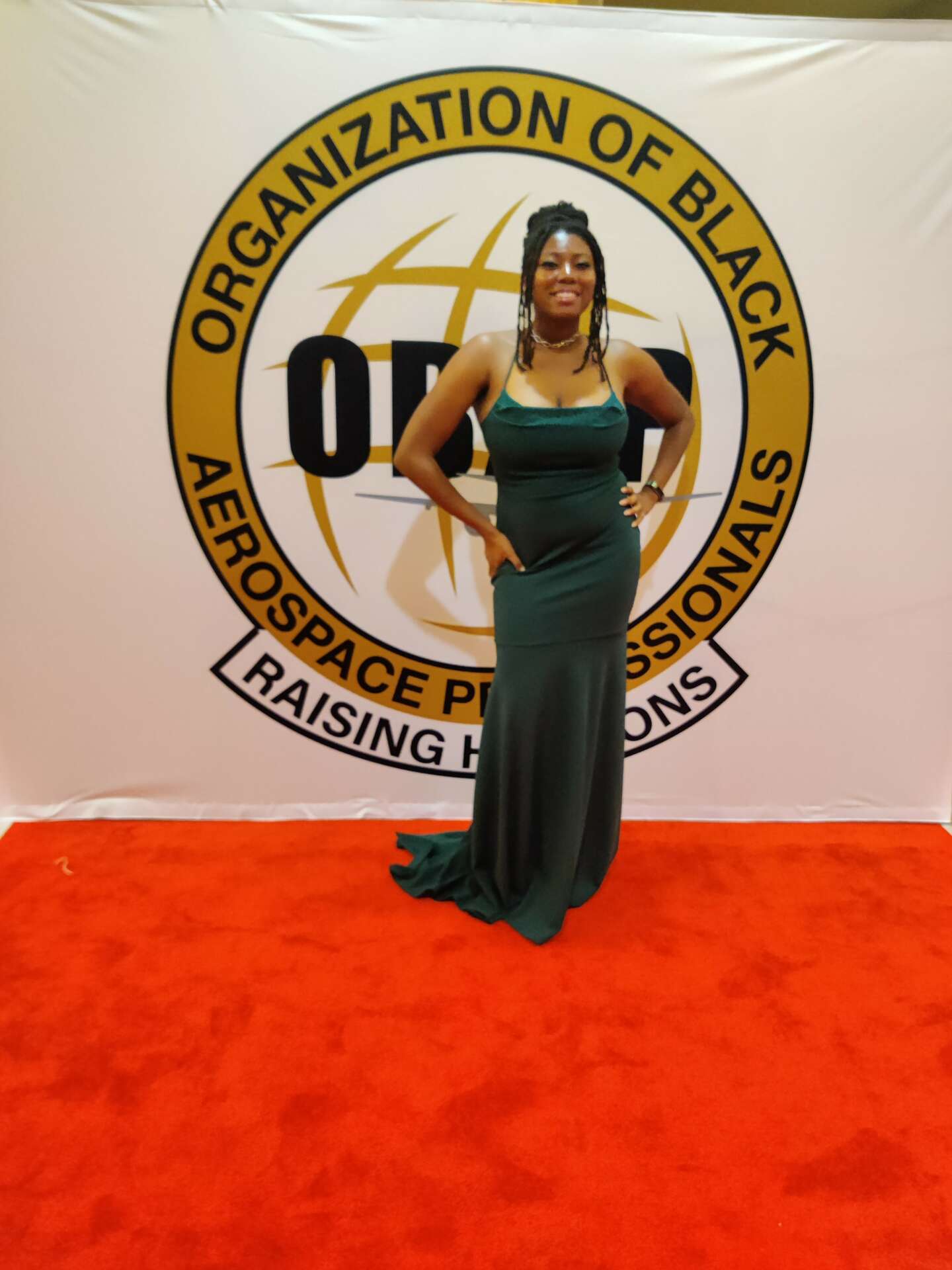
We often hear about learning lessons – but just as important is unlearning lessons. Have you ever had to unlearn a lesson?
“The opposite of success is failure”.
This is just not true. Whether it was in my personal life, career or in any endeavor I ever undertook, failing is just as common as sugar is in almost anything we eat. The key is instead of fearing failure you must embrace it when it happens and adjust your plan of attack. I was terrified of failing because instead of seeing failure as a redirection or an opportunity to grow, I saw it as the end. For example, I could not find a decent paying job in my home city – must be because I picked a non-competitive major, now I will never get out of debt enough to fly. If I had a hard landing during my lesson – I should be nailing every landing, I must not be good in fact, “am I sure I am meant to be a pilot”? What I should have been saying was I cannot find a decent paying job here, perhaps, I need to move to where there are more opportunities. I had a hard landing, but I learned how to correct my future landings. Now, I watch my students try to beat themselves up when they compare their flight journeys with someone else’s. They were beating themselves up the very same things I was, but now I was in a roll to not only correct them, but myself. My students helped me realize that progress truly is not linear, and we should expect some hiccups every now and again in our journey. I was wrong to think that success is the opposite of failure, when in fact, success is the product of failure.
How do you keep your team’s morale high?
Being in the role of senior flight instructor and a line check airman, has given me the opportunity to see another dynamic to this industry. Leadership and management. After so long, you will see your former flight instructors and seniors start to move on to larger companies. When that happens the people junior to you begin looking at you. At first this was jarring. I hated the spotlight and questioned if this group of talented people could benefit from my style. As I transitioned and eventually grew into the role, I found a few things I will take with me forever: As a leader you must first know how to follow – if someone on your team has the better solution, go with that, and officially recognize them for their contribution
If you want morale to stay high, get to know the strengths of the people around you and make sure to let them know that they are seen
No one respects a manager that demands a high performance from their team while they go along for the ride – get in the trenches. People respect those that do not put their position above the needs of the mission
Finally, remember how you felt when you were in a junior position. Compassion and mentorship go a very long way. 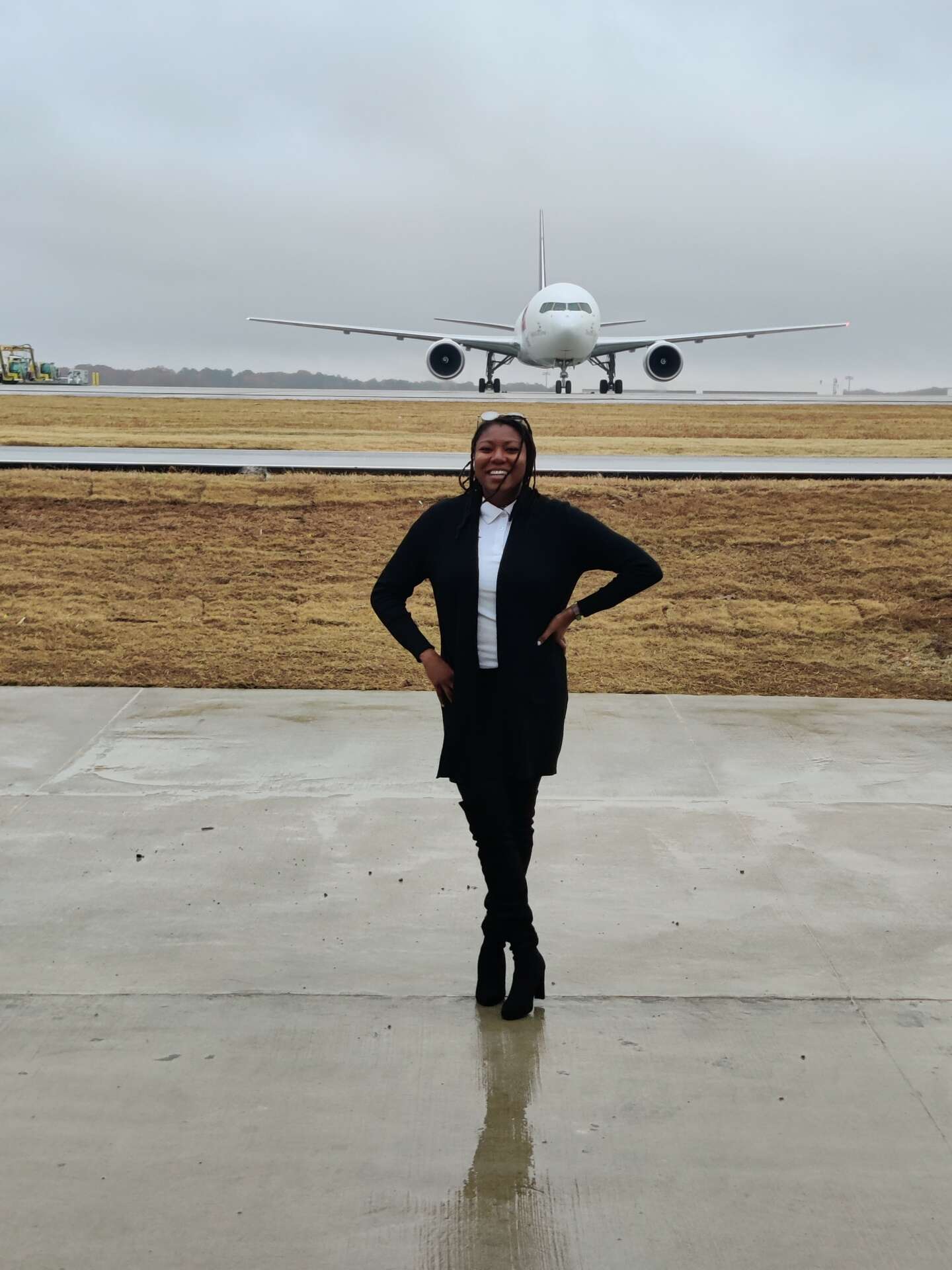
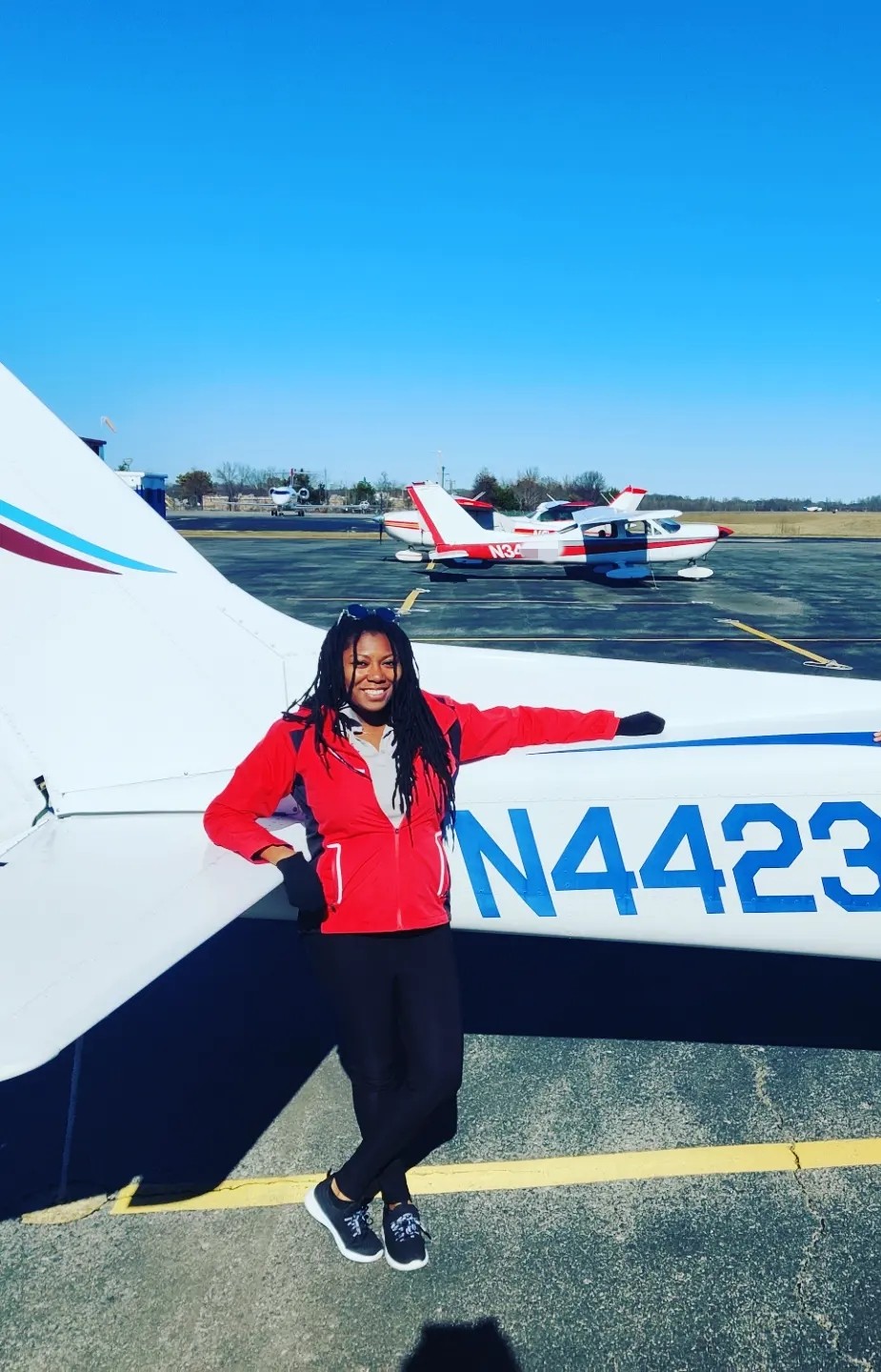
Contact Info:
- Instagram: https://www.instagram.com/its_kourtneywithak/
- Linkedin: https://www.linkedin.com/in/kourtneygillespie
Image Credits
Candace Barnett


